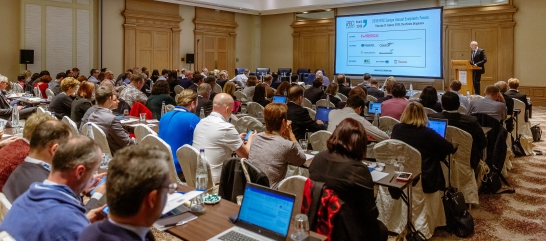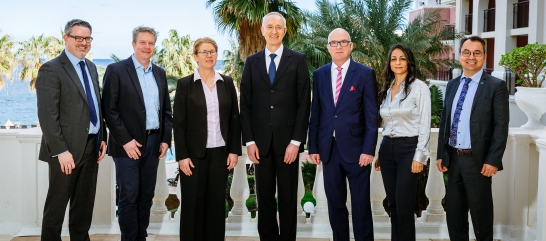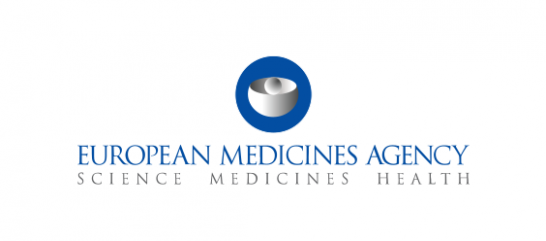|
|
Editorial

Dear readers,
It was so pleasing to see so many familiar and new faces at our recent Annual Forum in Malta, a new destination for us and our furthest yet!
For those of you who were not able to attend, this issue of Excipients Insight provides a comprehensive report of what was presented and discussed.
And that’s really the intention of our Forum ... to get people talking which in turn helps us to focus our efforts. I think the panel session on excipient master file systems for novel excipients served its purpose well, too. Some good debate followed after we heard various global perspectives on this subject and it was nicely wrapped up by outlining what we plan to do to take this initiative forward in the coming year.
This year will see a huge amount of change in our region, as the full impact of the UK’s proposed exit from the EU takes effect and the elections within the European Union will undoubtedly set new agendas.
And we very much hope that with our proposals for EMFs we can find new ears in the EU to listen to what we feel is a very real need to enhance the role of excipients in delivering innovative medicines.
Many of you provide feedback that you enjoyed this way of presenting a current issue, so for sure we will look to replicate this format at future events. I would like to take a moment to thank our Event Committee and the Secretariat, once more for pulling together a very successful event. It’s a lot of effort but well done for delivering a great programme and venue.
At the Annual General Meeting on 1 February we had our own elections, to our outgoing Board members, Dominik Odenbach (BASF) and Marie Lesenne (Roquette), I’d like to extend our great appreciation for their contributions in recent years. And of course, a heartfelt welcome to their successors, Kevin Hughes (Colorcon) and Karsten Diehl (BASF), we eagerly await your inputs into IPEC Europe’s future direction!
Lastly, a special mention for Kevin McGlue who has passed the baton over to Iain Moore (Croda) as the IPEC Europe representative to the EXCiPACT Board and Presidency. Kevin has been a truly great advocate for IPEC Europe and as its President for the past three years, he has helped the association to take enormous strides to become an efficient, recognised organisation. Truly, we owe a great debt to him.
So with those remarks I’ll end now and wish you a pleasant reading.
Frithjof Holtz
IPEC Europe Chair
Prof Dr Hendrik de Jong (1943-2019)

It is with great sadness that we inform you of the passing of Prof Dr Henk de Jong on 22 February 2019. Henk was a founding member of IPEC and remained one of our most active and valuable contributors over the years. He was the Chairman of IPEC Europe for two terms, member of the Board for more than 10 years, and a vital excipient “activist”, to use his words, in many of our committees. He always viewed the international harmonisation of excipients monographs as critical for the quality and safety of medicines and contributed to the creation of TriPEC (US-EU-Japan), which later became the IPEC Federation.
At the end of January 2019, we were privileged to have Henk attend our Annual Forum in Malta. As always, he provided his wise insights into our debates, committees, and engaged in multiple conversations about IPEC, and science and regulations in general. His connection to this world remained astonishing; there are few individuals who commanded such a breadth of knowledge and expertise.
Yet beyond this, Henk was passionate, enthusiastic, caring, fun, and a jazz musician.…indeed, he was an accomplished clarinet player and jazz connoisseur!
Henk is a great loss to our IPEC family, and his friendship, energy and optimism will be sorely missed.
We extend our sincere condolences to his family and our thoughts are with his wife, daughter and grandchildren at this time.
Henk held a Ph.D in Analytical Chemistry from the University of Leiden. For more than two decades and then as Extraordinary Professor of Pharmacy, he taught Pharmaceutical Analytics and Analytical Chemistry at this university. From 1984 to 2007, Henk worked at SERVIER International Research Institute. In parallel, Henk contributed to many organisations such as the International Pharmaceutical Federation (FIP), EFPIA, the French Pharmaceutical Industry Association (LEEM) and of course IPEC. He also was part of the European Pharmacopoeia Commission which he chaired between 2007 and 2010. He provided his expertise to WHO and made numerous publications on chemistry, spectroscopy, pharmaceutics, metabolism and toxicology.
2019 Annual Excipients Forum: report

The 2019 IPEC Europe Annual Excipient Forum took place on 31 January in Malta, providing current insights into the commercial, regulatory and scientific issues affecting both suppliers and users of pharmaceutical excipients. IPEC Europe’s chair, Frithjof Holtz, welcomed participants and highlighted some new developments in IPEC Europe, namely how its brand relaunch in 2018 has now been complemented with a more modern user-friendly website.
A common theme running through several presentations in the programme is integrity in its various guises. Whether integrity issues relate to the very ‘now‘ subject of data management or equally, the movement of goods through ever complex and global supply chains, it’s a subject that appears on many agendas.
First up was Dr Peter Gough, Executive Director, NSF Health Sciences, addressing the very dynamic subject of The Potential Impact of Brexit on Pharmaceutical Supply Chains. Peter reminded us that aside from potential stock-out situations, the relocation of the European Medicines Agency (EMA) to Amsterdam is having a huge impact on licensing activities. Particularly, many Marketing Authorisation (MA) holders are having to establish a base in another EU member state and reassignment of MA rapporteurs which were assigned to the UK. After the exit date, the UK’s MHRA plans to more or less maintain the status quo, at lease for an interim period, automatically granting marketing authorisations for currently approved products but basic information must be provided within one year. UK will accept product testing and authorisation by EU/EEA Qualified Persons (QPs). Conversely, the EU will consider UK to be a third country, with the pre-requisites of testing and QP release to be conducted in the EU/EEA. However, physical constraints because of the potential need to implement customs controls which need to be established, inevitably could create supply issues. This has led to inventory stockpiling which in itself creates problems because of limited storage capacity, particularly cold chain products. Unfortunately, all of these measures will have cost implications which ultimately transfer to patients. Of course, as negotiations remain in a state of flux, there are no clear answers yet as to what will happen! One potential benefit of Brexit is that it has already led to the critical review of supply chain with some efficiency gains. This could be at the cost of business in the UK where a high proportion of the monthly export of 47 million packs may be lost. Many generic medicines originate from India and henceforth it is likely that supply chains could be reconfigured to land product in the EU rather than the UK, if it becomes a third country.
David Thompson of Clarity Compliance Solutions in his address on Data Integrity – Industry Perspective – Benefit or Burden, reminded attendees that data integrity (DI) has always been an integral part of GMP. While it continues to be an area of focus with drug product manufacturers, increasingly questions are being asked about the upper reaches of pharmaceutical supply chains. In this regard David shared his thoughts on the extrapolation of the principles of data integrity to excipient manufactures. Regulators often talk about data integrity as issue of trust and reliability (of data) which when broken, has a long recovery time. This applies no less to excipient suppliers who have multiple customers where a bad reputation, however that might arise, spreads quickly. DI is very real for excipient suppliers as David’s own experiences identified that regulatory inspectors are asking how DI features in their supplier audits. While regulations and guidance are directed towards the pharmaceutical producers, there is common alignment that the principles of ALCOA (Attributable, Legible, Contemporaneous, Original, Accurate) are what need to be considered to direct a sensible approach focussing on doing the right things in a systematic way, always with the support of top management. Do it well and benefits will offset costs but equally the reverse can happen and create more DI issues if companies get it wrong. This is exemplified where IT solutions are implemented to help eliminate human error in processes. While data integrity is embedded in the system, the manufacturer must be sure it reflects its processes and operatives can be trained to reliably execute their tasks. While continuous manufacturing is a relatively new concept in the manufacture of pharmaceuticals, it has always been more common in the excipient world. Perhaps there is an opportunity for the reverse sharing of knowledge here to help establish DI strategies?
Much attention had been paid over recent years to maintaining appropriate transport conditions for drug products and inevitably perhaps, excipients are increasingly in focus. Allan Whiston, QA Resolutions discussed this topic with reference to an industry survey which confirmed that there are real concerns related to the appropriateness and duration of transport conditions for excipients and their impact on quality and integrity throughout the entire supply chain. There are few regulations directing which controls should be in place for excipients but in general, there is a lack of clarity compounded by references for storage conditions which vary widely across global compendia. The pharmaceutical manufacturer requires an understanding of the entire supply chain, including excipients, which has translated into the practice of mapping which helps to identify any risks for subsequent mitigation. The hazards to which any material may be subjected by for example, multiple transport nodes, have the ability to increase exposure to adverse temperature conditions, cross contamination, tampering, etc. In the absence of regulatory guidance and in the interest of patient safety, guidance is needed. This presentation generated a lot of discussion, raising the issue of the increasing need for stability data to support temperature excursions and the types of studies which should be performed. It was also suggested that engaging forwarding agents in forums such as could direct them to develop solutions to achieve better control of transport conditions as it represents a potential business opportunity?
Much attention had been paid over recent years to maintaining appropriate transport conditions for drug products and inevitably perhaps, excipients are increasingly in focus. Allan Whiston, QA Resolutions discussed this topic with reference to an industry survey which confirmed that there are real concerns related to the appropriateness and duration of transport conditions for excipients and their impact on quality and integrity throughout the entire supply chain. There are few regulations directing which controls should be in place for excipients but in general, there is a lack of clarity compounded by references for storage conditions which vary widely across global compendia. The pharmaceutical manufacturer requires an understanding of the entire supply chain, including excipients, which has translated into the practice of mapping which helps to identify any risks for subsequent mitigation. The hazards to which any material may be subjected by for example, multiple transport nodes, have the ability to increase exposure to adverse temperature conditions, cross contamination, tampering, etc. In the absence of regulatory guidance and in the interest of patient safety, guidance is needed. This presentation generated a lot of discussion, raising the issue of the increasing need for stability data to support temperature excursions and the types of studies which should be performed. It was also suggested that engaging forwarding agents in forums such as could direct them to develop solutions to achieve better control of transport conditions as it represents a potential business opportunity?
Controlling the physical condition of the excipient supply chain is one consideration, and the challenges faced by distributors in ensuring its security is another. This matter was tackled by Catherine Martin, Quality and Regulatory Affairs Director at Univar, advocating two principles, namely Traceability and Transparency which are important to guide a secure supply chain strategy. These reference back to the need for supply chains to be fully mapped and the steps of Prevention, Detection and Response/Action, if properly implemented will provide the level of security required. Common practices of managing suppliers and service providers as well as local environmental and inbound/outbound controls are to be expected at the excipient distributor level. Repackaging activities of course, present a whole different level of expectation to prevent compromises to product integrity and security. As traceability throughout the supply chain is essential, for example back to original manufacturers and original documents, it reinforces the need for a data integrity programme which has management support and understood by all employees.
IPEC Europe’s current work programme includes developing a strategy to reinvigorate interest in establishing an excipient master file (EMF) system to support the use of novel excipients in innovative medicines in Europe. Interestingly, Europe is the only major regulatory region in which such a system is not in place. In order to stimulate a debate on this topic representatives from other IPEC regions in China (Colin Li, Senior Manager Regulatory Affairs, China R&D at CSL Behring and immediate past Chair, IPEC China) and the United States (Priscilla Zawislak, Global Regulatory Affairs Advocacy Manager, DowDuPont and immediate past Chair, IPEC-Americas) as well as Europe itself (Kate Denton, Regulatory Affairs Manager, Albumedix and Johanna Eisele, Head of Regulatory Affairs Excipients, Evonik Pharma Polymers and Chair of the IPEC Europe Quality and Regulatory Affairs Committee), presented individual perspectives with Liz Meehan, AstraZeneca and a member of IPEC Europe’s Board, acting as facilitator. The pre-existing systems of the reference countries are quite disparate: the US system is non-mandatory, unlike China which also requires extensive manufacturing information to be provided in the filing. Sharing such proprietary information is always a concern but the US FDA commits that details are not imparted to any other party. Such assurances go a long way to help (novel) excipient manufacturers provide details which ultimately help regulators to make more meaningful assessments of the quality and safety aspects of any material. It was commented that since the introduction of the FDA’s new (Type IV) DMF process for excipients, it is less likely to be used for compendial materials. Discussions reflected that there is support not just for a system in Europe but for a global, harmonised process for EMFs for novel excipients, and as such, it should be on the ICH agenda. Meanwhile, USP in collaboration with FDA (CDER), is seeking stakeholder input on the topic of Novel Excipients with a survey on the current state of excipient innovation and if there is a link to current and future challenges in fulfilling public health needs. And regarding the current situation in Europe, it is proposed that it would not be very difficult to establish a platform for EMFs. The process used for APIs (ASMF) could be applied to novel excipients. As the likely number of compounds which would go through this process would not be significant, it would not place a heavy burden on the regulators. But, an EMF system in Europe would deliver the benefits of a full scientific review with confidential data protection thus meeting the needs of the excipient user and excipient manufacturer alike. This could remove the current barriers for drug product development dispelling the general feeling in the room that excipient manufacturers will not commit to develop new excipients. Nor indeed, drug manufacturers will not risk using novel excipients, as the current regulatory hurdles are so high.
“It’s more of an art than a science’’ was Alan Whipple’s (Microbiology Director Consumer Healthcare, GSK) opening remark to his session on Microbiological Specifications for Excipients – a Risk-Based Approach. Setting such specifications is confounded by misalignment between manufacturer and customers and compendial inconsistencies, not least how to address objectionable organisms. As a consequence, unnecessary testing and even material rejections and product supply issues may result. Baseline requirements, as detailed in ICH “Materials for Use’ must be respected but risk assessment considering for example, the application in which materials is used and processing of the final product, is of value in determining appropriate specifications. Alan concluded that simplification is the key to success and can help deliver benefits such reduced lead times and rejections.
Rounding off the day’s programme, Otmane Boussif, Global Head Early Phase Development New Biological Entities, at Novartis, provided an overview of the Importance of Excipients Quality in Developing Innovative Biological Medicines. The selection of critical raw materials and excipients is vitally important for such products and release tests should be designed to ensure consistent quality and reproducibility. Supplier management including audits of key suppliers and good vendor relations will help to ensure quality requirements are met.
Please contact the IPEC Europe Secretariat for any questions related to the IPEC Europe Forum 2019.
IPEC Europe Board

Two new IPEC Europe Board members were elected during the association’s Annual General Meeting on Friday 1 February.
Karsten Diehl representing BASF and Kevin Hugues representing Colorcon have been elected as Board members. Both active in IPEC Europe for years, they are also members of the Quality and Regulatory Affairs Committee.
Diehl is a Biotechnologist for BASF and has been working for more than 20 years in the regulated pharmaceutical and health care environmental. He has experience in manufacturing pharmaceutical ingredients, contract manufacture handling, supply chain and distribution as well as general Quality- and GMP-Compliance topics.
Hughes is Regulatory Affairs and Quality Assurance Manager for Colorcon, and has been with the company for over 15 years in various technical and quality roles. A graduate of Nottingham University, he has been involved in the pharmaceutical industry for 20 years.
Diehl (BASF) and Hughes (Colorcon) are stepping in the positions vacated by Dominik Odenbach representing BASF and Marie Lesenne representing Roquette Frères, which contribution to the association has been much appreciated. A thank you for the former Board members and a welcome to the new Board members.
 
Profile pictures: Marie Lesenne and Dominik Odenbach, former IPEC Europe Board members
 Frank Milek representing Aug. Hedinger has been re-elected as a Board member for the Producers group. Frank Milek representing Aug. Hedinger has been re-elected as a Board member for the Producers group.
For the Users group, Karine Roth representing Novartis (profile picture, left) and Frithjof Holtz representing Merck KGaA have also been re-elected to their position on the Board.
The profile of all Board members is available on the IPEC Europe website.
Picture on top from left to right: Kevin Hughes (Colorcon), Karsten Diehl (BASF), Liz Meehan (AstraZeneca), Frithjof Holtz (Merck), Frank Milek (Aug. Hedinger), Amina Faham (DowDuPont), Mahmud Yunis (BIOGRUND).
IPEC committees, activities aplenty!

With so many IPEC members converging in Malta around IPEC Europe’s Annual Forum, it presented the perfect opportunity for various groups to get together. To be able to discuss plans for 2019 and informally exchange ideas, identifying areas of possible collaboration and alignment, should not be missed!
The IPEC Federation got the ball rolling, holding a one-day Board meeting followed by its Annual General Assembly. Discussions covered finalising objectives which directed efforts on its priority areas of strategic focus, namely Guidance, Innovation, Compendial Convergence, Stakeholder Collaboration and the IPEC Federation Profile.
Likewise, IPEC Europe’s Good Distribution Practices and Quality & Regulatory Affairs Committees put their plans together, nicely informed with inputs from the IPEC Federation. QRAC Observer team members were able to join the QRAC core team later in the day to get immediate feedback on several important initiatives. It was great too, that several members of other IPECs could join IPEC Europe committees, promoting inter-IPEC collaboration. A great start to the year!! It is anticipated that the Pharmacopoeial Review and Harmonisation Committee will be revived in the coming months with a new agenda to re-engage members in this important area.
EXCiPACT: a new Board, a new President, a new member from China

The EXCiPACT Annual General Assembly took place in Malta on 31 January, with all members - FECC, IPEC-Americas, IPEC China, IPEC Europe and PQG UK – represented at the event. At the following IPEC board meeting on 1 February, Iain Moore of Croda became the official IPEC Europe representative on the EXCiPACT board succeeding Kevin McGlue of Colorcon. On 8th February, during a meeting of the EXCiPACT Board, after three years of leadership, Kevin McGlue passed the baton of presidency and chairman of the board to Iain Moore. Dale Carter of IPEC-Americas became vice-president and Sylvain Bougoin of Fecc became treasurer. Iain Moore, a founder and first president of EXCiPACT, commented that” this is a great opportunity to further develop the certification scheme and help ensure medicines are safer for patients”.
Under his Presidency, Kevin McGlue helped EXCiPACT improve its financial stability, organisational structure and relationships with its business partners – the seven certification bodies. He also worked tirelessly to increase the awareness of the benefits of the certification scheme to excipient suppliers, pharma company excipient users and regulators.
The change of leadership comes at a time when EXCiPACT officially welcomes SPPEA, the Jiangsu Pharmaceutical Packaging and Pharmaceutical Excipient Association, as a new member from People’s Republic of China.
Upcoming activities include a two-day Auditor Training Course in Brussels on 12/13 March, an Awareness Training Course on 14 March in Brussels, one-day Seminars in Germany on 20 March, UK on 29 April and U.S. speaking events at ExcipientWorld on 8 May and the NJPQCA-FDA conference on 14 May.
EXCiPACT will also host a free-to-attend Seminar in Coventry on the afternoon of 29 April and will be represented at Making Pharmaceuticals UK at the same location on the following two days: make sure to pay a visit to Stand 108, shared with IPEC Europe, and mark your calendar for the presentations on 30 April and 1 May.
To learn more about any of the above events, especially the training sessions, contact the EXCiPACT Secretariat and visit the website www.excipact.org.
IPEC Europe calendar

| Group |
Q2 2019 |
| IPEC Europe Board |
12 March, Brussels, Belgium |
| Good Distribution Practices Committee |
2/3 April, Darmstadt, Germany |
| Quality & Regulatory Affairs Committee |
2 April, Brussels, Belgium |
USP seeks input on Novel excipients

USP is seeking stakeholder input on the topic of Novel Excipients with a survey open until end-March.
This survey seeks to identify the views of stakeholders on the current state of innovation in excipients and if there is a link to current and future challenges in fulfilling public health needs.
This survey analysis will help USP to identify specific issues with using novel excipients in pharmaceutical development and innovation. The survey on novel excipients is the result of U.S. FDA (CDER) collaborating with USP to develop data from the pharmaceutical industry and other stakeholders to assess the need and importance of novel excipients.
IPEC Europe recommends its members to answer to this USP survey and share the link below within your company as well with others that have an interest in novel excipients and drug innovation.
Any information provided is treated as confidential and is not attributable to your company.
The survey will be available until end-March.
Access the survey: click on the link
EMA reveals date it will begin Amsterdam operations

The European Medicines Agency (EMA) announced further details on its move from current London headquarters to Amsterdam under the ‘phase 4’ of its business continuity plan.
The physical move to the Spark temporary premises in Amsterdam will occur on the week starting 4 March. From 4 to 8 March, the EMA will operate on the basis of extended teleworking. All EMA staff will gradually move into the Spark building over the course of the following week (11-15 March). After 15 March, all Agency meetings will take place in the new premises in south Amsterdam.
The agency previously announced how the move has an impact on staff numbers, as up to 25% of its workforce will not go to Amsterdam. This reduction will likely reduce the operations at the agency.
The EMA will review which activities will be resumed in the second half of 2019 once the move is completed in April.
Suggested readings

EMA Publishes Revision to Environmental Risk Assessment Guideline
The European Medicines Agency (EMA) has published a revision to its guideline on the environmental risk assessment (ERA) of human medicines, which is now open to comments from stakeholders for a six-month period, it revealed in a Nov. 30, 2018 press statement.
PharmTech.com
UK MHRA’s “No Deal” Brexit Preparations Include Role for “Responsible Person – Import”
The new role of “Responsible Person – Import” is among the proposals the UK’s Medicines and Healthcare products Regulatory Agency (MHRA) has developed through its engagement with stakeholders to prepare for the possibility of an unwanted “no-deal” exit of the UK from the European Union (EU)
International Pharmaceutical Quality
Five further countries join EMA-FDA mutual recognition pact
Inspections of manufacturing facilities undertaken by Belgium, Denmark, Finland, Latvia and Estonia will be recognised as valid by the US FDA.
in-Pharma Technologist
Following FMD rulings using a ‘pragmatic’ approach
The falsified medicines directive (FMD) has finally kicked in, but how will the UK supply chain be affected, and how will pharmacies and hospitals cope?
European Pharmaceutical Review
Next step in personalized medicine enabled by 3D printing
As 3D printing technology continues to develop, it is becoming more disruptive to the pharmaceutical manufacturing industry as its value in drug delivery becomes apparent.
in-Pharma Technologist
Looking beyond the Deadline
The EU FMD deadline is closing in, so now is the time to look beyond the short term.
PharmTech
Responding to disruptions in the pharmaceutical supply chain
Drug shortages and supply chain disruptions can affect healthcare provision. A study tries to determine the response actions after a supply chain disruption occurs.
The Pharmaceutical Journal
Events

Here is a round-up of forthcoming events of interest to suppliers and users of excipients. Please let the IPEC Europe Secretariat know if we've missed one.
Joint EDQM-USP ‘13th International Symposium on Pharmaceutical Reference Standards (IRSS)
Strasbourg, France - 13-14 March 2019
More information here
Making Pharmaceuticals Exhibition and Conference
Coventry, United Kingdom - 30 April – 1 May 2019
More information here
2019 Excipient World Conference & Expo
Washington DC Metro area, United States - 6-8 May 2019
More information here
2nd Annual PDA Conference on International Developments in the Pharmacopoeial Landscape
Geneva, Switzerland - 16-17 May 2019
More information here
International Conference on the ‘EDQM & European Pharmacopoeia: State-of-the-Art Science for Tomorrow’s Medicines’
Strasbourg, France - 19-20 June 2019
More information here
APV/IPEC Europe Excipient Conference 2019
Vienna, Austria - 24-25 September 2019
More information here
CPhI Worldwide
Frankfurt, Germany - 5-7 November 2019
More information here
|
|
|
|
|